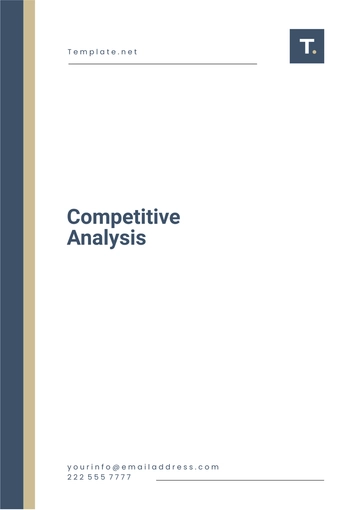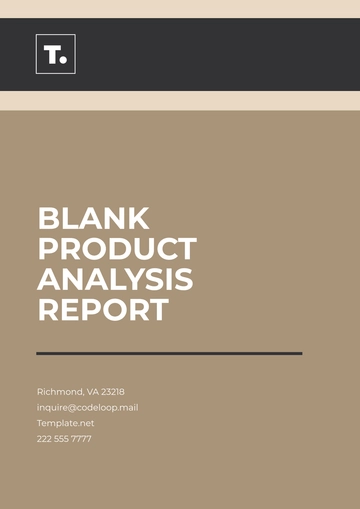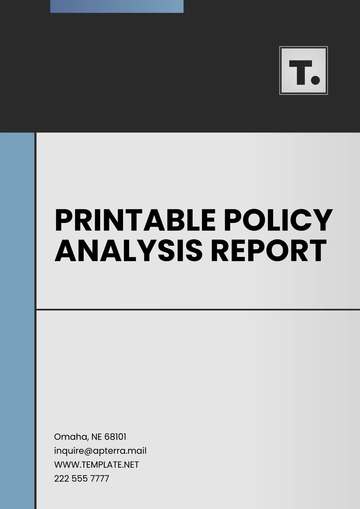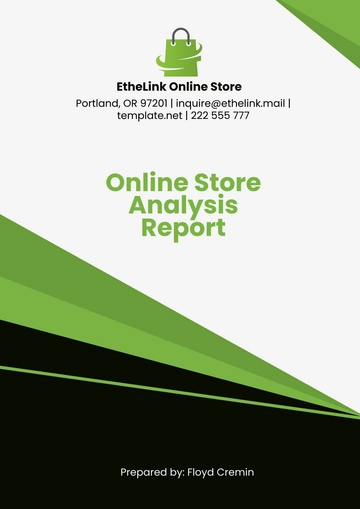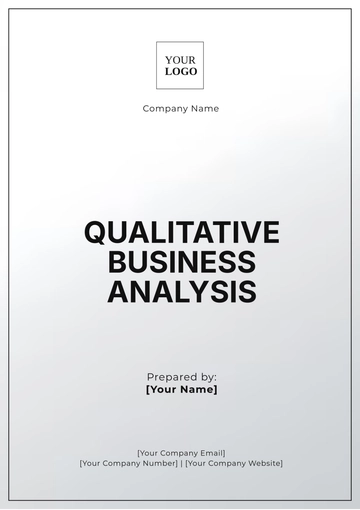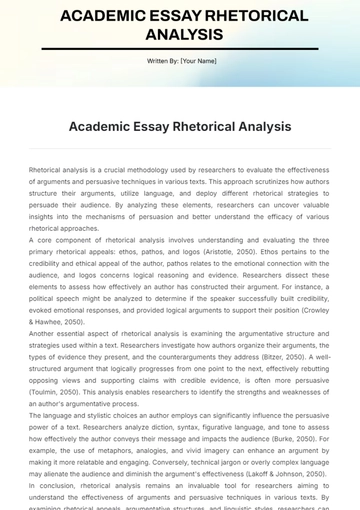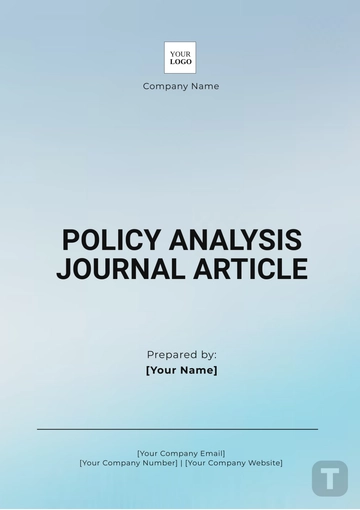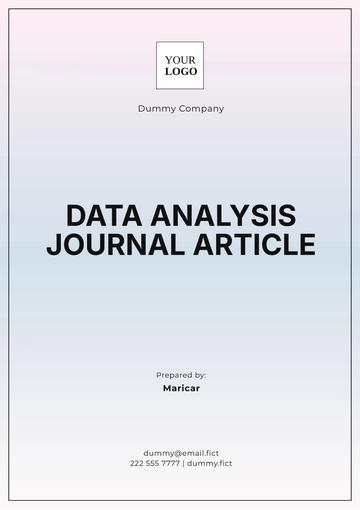Free Real Estate Brokerage Economic Analysis
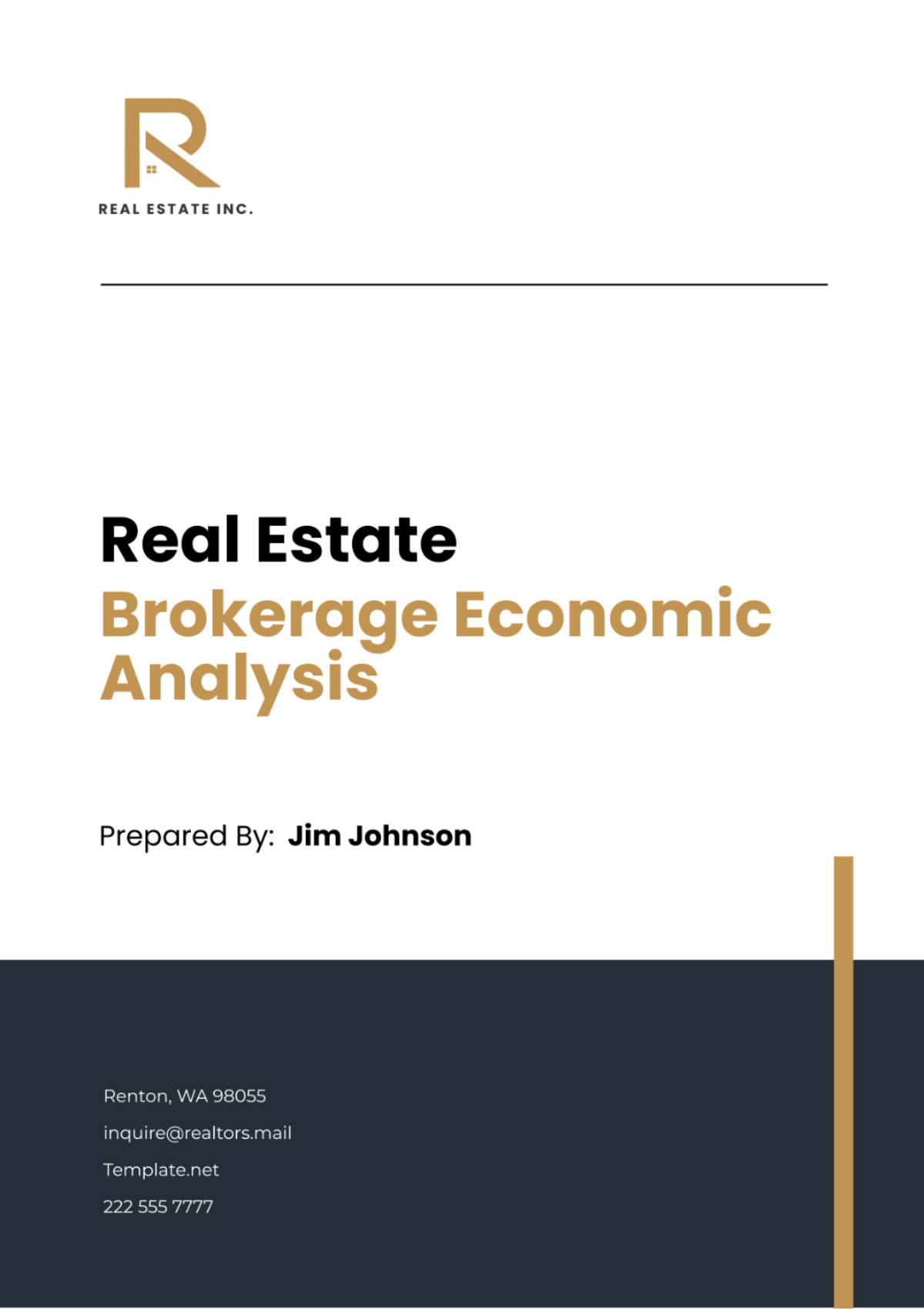
I. Executive Summary
The Economic Analysis of Real Estate Brokerage is a comprehensive study that looks in depth at the economic elements that have an impact on [Your Company Name], a premier brokerage firm that is running its operations in the Greater Metropolitan Area. This report delves deeply into several crucial aspects including the prevailing conditions of the real estate market, the trends that are prevailing in the industry, demographic factors that could potentially influence the business operations, the financial performance of the company, and the regulations in place that govern the operations within this industry.
The purpose of this report is to deliver insights that can be translated into actionable initiatives, along with strategic recommendations. These are meant to fuel both growth and profitability for [Your Company Name], assisting the company in carving out a successful path in the competitive world of real estate brokerage.
II. Introduction
[Your Company Name] is a well-established brokerage firm catering to residential, commercial, and industrial real estate segments. With a focus on delivering exceptional service and value to clients, [Your Company Name] has positioned itself as a trusted advisor in the local real estate market. The economic analysis conducted herein seeks to provide [Your Company Name] with a deeper understanding of the market landscape and identify opportunities for further success.
III. Market Overview
The Greater Metropolitan Area real estate market has experienced robust growth in recent years, driven by strong economic fundamentals and population expansion. Residential demand remains buoyant, supported by low mortgage rates and favorable demographic trends. However, the commercial sector has faced challenges amidst evolving workplace dynamics and shifts in consumer behavior.
Supply constraints persist across property types, leading to intensified competition among buyers and renters. Despite these challenges, property prices have appreciated steadily, reflecting the underlying strength of the market. Notably, suburban areas have witnessed increased interest as remote work arrangements become more prevalent.
IV. Industry Trends
Advancements in technology are persistently revolutionizing the way the real estate brokerage industry operates. This reformation is primarily driven by the emergence of digital platforms that are now enhancing efficiency and accessibility for everyone involved in the process, including both real estate agents and their clients. These innovative digital platforms come in many forms and are equipped with a variety of features. For example, platforms are now offering virtual tours which allow potential buyers to explore properties remotely, contributing to massive savings in time and travel expenses. Moreover, the real estate market has also been witnessing an increasing use of 3D modeling techniques. These models offer detailed structural designs that give clients a realistic picture of the property, assisting them in making more informed decisions. Additionally, advancements in Artificial Intelligence (AI) have led to the development of predictive analytics tools specifically designed for real estate. These AI-driven analytics tools help in efficiently streamlining property transactions by predicting market trends, analyzing buyer behavior, and, more importantly, enhancing customer experience. In summary, the real estate brokerage industry is undergoing a significant digital transformation. The incorporation of technological advancements like virtual tours, 3D modeling, and AI-driven analytics serve to not only streamline the complex process of property transactions but also improve the overall experience for the customer.
Consumer preferences are evolving, with a growing emphasis on sustainability, wellness features, and smart home technologies. As such, brokerage firms need to adapt their service offerings to meet changing demands and differentiate themselves in a competitive market landscape.
V. Demographic Analysis
The population growth in the Greater Metropolitan Area is continuing strongly, and this is getting fueled by two primary factors which include a natural increase and net migration. Two generational groups in particular, the Millennials and those from Generation Z, occupy a significant portion of the existing population. Their preferences and lifestyle choices are observed to have stimulated demand for smaller, beginner homes as well as living spaces situated in urban areas. On the other hand, the baby boomers, who are now approaching their senior years, also have an influence on the overall market dynamics. An increasing trend among this older generation is their growing need and desire to move to smaller living spaces, reflecting their lifestyle changes and it has been noticed that they are exhibiting an increasing demand for communities specifically designed for retired living.
Income levels vary across demographic groups, impacting affordability and housing preferences. Affluent neighborhoods continue to attract high-income earners, while affordable housing remains a priority for middle and lower-income households.
VI. Financial Analysis
Over the past several years, [Your Company Name] has consistently shown the ability to endure and even flourish in changing market conditions through the robustness of our financial performance. This resilience is particularly evidenced in our capacity to maintain steady growth in revenue, even in adverse economic environments, as well as to preserve healthy profit margins. Despite the various challenges posed by the market forces, our brokerage operations have retained a powerful and impactful presence in the market that is strengthened by diversified revenue streams that span residential, commercial, as well as leasing sectors in real estate.
Our dedication to cost management initiatives has proven to be highly effective. These efforts have led to optimization of operational expenses, providing assurance for continued profitability. Despite these strengths, it remains of utmost importance for us to invest in technology, talent development, and skill upgrading. These investment areas are essential in ensuring that we can continue to compete effectively in the continually evolving landscape of the real estate industry.
VII. Market Segmentation
At [Your Company Name], our market segmentation strategy is designed around four key areas - residential sales, commercial leasing, property management, and investment advisory services. These distinct segments each bring about their own unique opportunities. Residential sales involve catering to individuals or families looking to buy a home, and our goal here is to match each client with a property that suits their needs and budget perfectly. Commercial leasing, on the other hand, focuses on businesses in need of spaces for their operations - from retail shops to office buildings. In property management, we take care of a variety of tasks related to properties owned by our clients, which can range from regular upkeep and maintenance to dealing with tenants. Lastly, our investment advisory services focus on helping clients make informed decisions about real estate investments, thereby allowing them to maximize their returns. Each segment not only allows for revenue generation but also offers various opportunities for engaging with clients, understanding their individual needs, and providing tailored solutions.
Residential sales continue to be a core focus for [Your Company Name], leveraging its extensive network and market expertise to facilitate seamless transactions for homebuyers and sellers. Commercial leasing represents another growth area, particularly in emerging business districts and mixed-use developments.
VIII. Competitive Analysis
[Your Company Name] faces competition from both traditional brokerage firms and new entrants leveraging technology-driven business models. Established players command market share through brand recognition and longstanding client relationships, while startups disrupt the market with innovative service offerings and agile operations.
To maintain its competitive position, [Your Company Name] must differentiate itself through superior customer service, technological innovation, and targeted marketing strategies. Building on its reputation for reliability and expertise, the brokerage can capitalize on emerging market trends and expand its market reach.
IX. Economic Indicators
Key economic indicators, including GDP growth, unemployment rates, and consumer sentiment, influence consumer confidence and purchasing power in the real estate market. Low interest rates have supported housing affordability and stimulated demand for both primary residences and investment properties.
However, inflationary pressures and supply chain disruptions pose risks to economic stability, warranting cautious optimism in the near term. Monitoring these indicators closely will enable [Your Company Name] to anticipate market shifts and adjust its strategies accordingly.
X. Regulatory Environment
Regulatory compliance plays a crucial role in enabling [Your Company Name] to operate in an effective and efficient manner within the vast expanse of the Greater Metropolitan Area. There are numerous external factors that can negatively impact the process of property development and transaction, and it is here that the importance of regulatory compliance becomes more pronounced. Specifically, zoning regulations, which dictate how land in specific areas can be used, licensing requirements necessary to operate legally, and environmental policies aimed at protecting natural resources and fostering sustainability, are key considerations that directly impact decisions related to property development and transaction processes.
Ensuring compliance with these regulations, requirements and policies not only helps to prevent potential legal issues, but also contributes to smooth operations, enabling us to provide a high level of service to our customers.
Additionally, tax policies and incentives can influence investment decisions and property valuations. [Your Company Name] must stay abreast of regulatory changes and ensure compliance to mitigate legal risks and uphold its reputation as a trusted advisor.
XI. Risk Analysis
[Your Company Name] faces various risks, including economic downturns, market volatility, legal and regulatory changes, and technological disruptions. Market saturation and intense competition pose challenges to revenue growth and market expansion.
To mitigate these risks, [Your Company Name] must diversify its service offerings, invest in talent development, and adopt agile business practices. Building strong relationships with clients and stakeholders will also enhance resilience in the face of uncertainty.
XII. Opportunities for Growth
Despite market challenges, [Your Company Name] has significant opportunities for growth in the Greater Metropolitan Area. Expanding its market reach through digital marketing initiatives and strategic partnerships can unlock new revenue streams and attract a broader client base.
Investing in technology infrastructure and data analytics capabilities will enhance operational efficiency and facilitate personalized customer experiences. Moreover, targeting niche markets such as luxury properties, eco-friendly developments, and mixed-use projects can drive long-term profitability for [Your Company Name].
XIII. Conclusion
The Economic Analysis offered by the Real Estate Brokerage is a resource that supplies a wealth of detailed insights to [Your Company Name], which are significant in understanding the complexities of market dynamics, the various trends that currently define the industry, and the potential opportunities for growth in the future. This analysis allows [Your Company Name] to leverage its unique strengths and tackle any potential challenges effectively.
In doing so, it sets up [Your Company Name] to strategically position its operations in order to maintain its success in the future. It also aids in establishing its position as a leading competitor within the extensive and competitive real estate market of the Greater Metropolitan Area.
- 100% Customizable, free editor
- Access 1 Million+ Templates, photo’s & graphics
- Download or share as a template
- Click and replace photos, graphics, text, backgrounds
- Resize, crop, AI write & more
- Access advanced editor
Elevate your real estate brokerage game with Template.net's editable and customizable Real Estate Brokerage Economic Analysis Template. Tailored for industry experts, this template boasts an intuitive AI Editor Tool, empowering you to effortlessly analyze market trends, identify growth opportunities, and craft strategic recommendations. Streamline your workflow and stay ahead in the competitive real estate landscape today!
